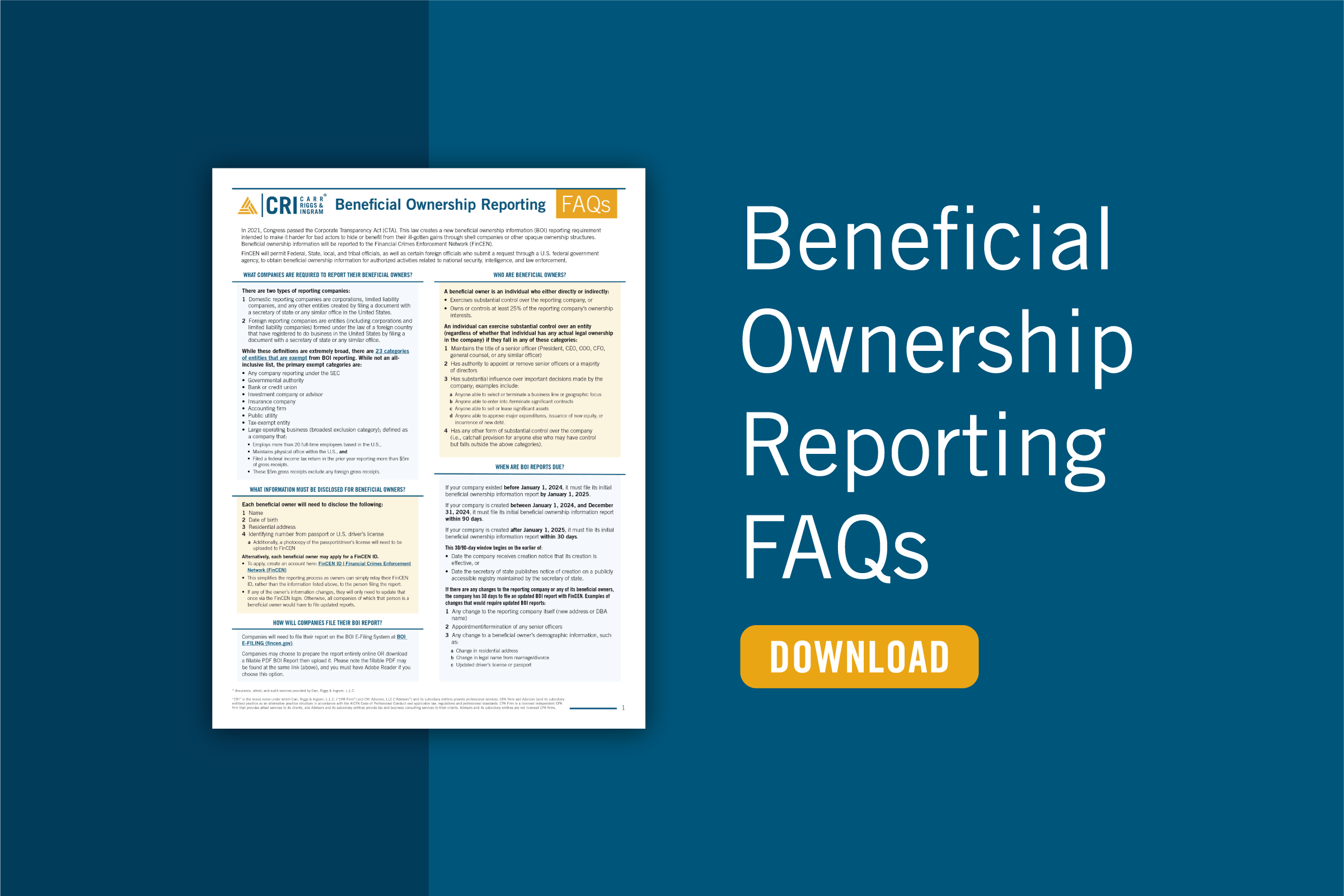More Tips for Translating GASB Standards into English
- Contributor
- Dean Michael Mead
Dec 11, 2023
The rules published by any standards setter, including those of the Governmental Accounting Standards Board (GASB), can be difficult to understand. Like laws, they are written in a fashion that is intended to ensure that the entities subject to them will do what is required and will not be able to find a loophole that allows them to elude the requirement. Consequently, accounting and financial reporting standards are anything but conversational or plain language. Expanding on an earlier CRI article about translating GASB standards into English, here are eight tips for understanding the words the GASB employs to describe the likelihood of an occurrence or outcome—reasonably certain, probable, more likely than not, reasonably possible, and remote.
Tip 1: Pay Close Attention to Likelihood Words
Whether a government should follow some standards depends on the probability or likelihood of an event, transaction, or outcome happening. For example, if Government A has guaranteed a loan taken out by Government B, Government A should report a liability in its financial statements for any loan payments it is more likely than not to make on Government B’s behalf.
As the following tips explain, the GASB uses a variety of words that indicate different levels of likelihood. Governments may find it challenging to interpret those words because the GASB’s definitions (with one exception) are based on one another or on other adjectives that are not defined. Consequently, governments are obliged to use their professional judgment to determine what the words mean numerically.
Probabilities generally are stated in terms of percentage likelihoods, ranging from 0% (no chance at all of happening) to 100% (definitely will happen). The five phrases that the GASB utilizes may be visualized along that 0–100% range as follows, based on their definitions:

Source: Based on an illustration in a GASB discussion paper dated 10-18-21.
It is important for a government to pay close attention to those phrases because it is up to the government to determine their precise meanings.
Tip 2: Remote Is a Very Low Probability
In fact, remote is the lowest probability terminology in the GASB’s standards. The GASB defines remote as “The chance of the future event or events occurring is slight.” It falls to the government to divine the meaning of slight. Broadly, the idea is that there is very little chance of the event in question ever happening.
Tip 3: Reasonably Certain Is a Very High Probability
At the other end of the likelihood range, reasonably certain is the highest probability terminology in the GASB’s standards—effectively, the opposite of remote. Reasonably certain includes 100% likelihood, but it is unclear what is the lowest a likelihood could be and still qualify as reasonably certain. The GASB’s standards for leases, public-private partnerships, and subscription-based software use the phrase 37 times but never define it authoritatively. In the Basis for Conclusions for GASB Statement 87 on leases, the GASB explains that reasonably certain is “is a higher threshold and is less speculative than probable.” Therefore, determining what reasonably certain means depends on a government first determining a percentage likelihood for probable.
Tip 4: Probable Also Is a Very High Probability
The range of likelihoods covered by probable includes reasonably certain. In other words, it extends as high as 100%, and its bottom threshold is lower than for reasonably certain. However, there is no exact percentage that all governments should use as the lower benchmark. Each government must decide how to translate the GASB’s definition of probable: “The future event or events are likely to occur.” If you look up synonyms for likely, chances are you’ll be pointed back to probable. In the absence of more exact guidance, governments may settle on very different percentages.
Tip 5: Reasonably Possible Is the Widest Range of Probabilities
The GASB defines reasonably possible as “The chance of the future event or events occurring is more than remote but less than likely.” Its bottom boundary is remote, and its top boundary is probable. That means this likelihood phrase can’t be defined without first defining two other likelihood thresholds. If one views remote as very low and probable as very high, reasonably possible is the broadest category. That may be helpful to governments because their professional judgment doesn’t need to be as precise as for remote, probable, and reasonably certain.
Tip 6: More Likely Than Not Is the Only Precisely Defined Probability
Among the likelihood phrases in the GASB standards, the only one that does not need to be determined is more likely than not. It includes any percentage greater than 50%.
Tip 7: Translating the Terminology Is Only the First Step
As challenging as it may be to determine what the GASB’s likelihood words mean, it may seem simple by comparison to the use of professional judgment that is necessary for a government to evaluate whether the likelihood of a transaction, event, or outcome falls within the relevant likelihood category. For instance, deciding what reasonably certain means merely prepares a government applying the lease standards to then consider which of the following, if any, are reasonably certain of occurring:
- An option to extend the lease will be exercised.
- An option to terminate the lease will not be exercised.
- A fiscal funding or cancellation clause will be exercised.
- A purchase option will be exercised.
- Payments under a residual value guarantee will be required.
- Other payments will be required.
Tip 8: Get CRI’s Help Translating GASB-Speak
If you need assistance understanding what GASB standards require, contact CRI to translate them into plain English. We are fluent in the GASB’s lingo. And if there are other words the GASB uses that you don’t understand, email them to [email protected] and we’ll explain them in a future article.










































































































































































































































































































































































































































































